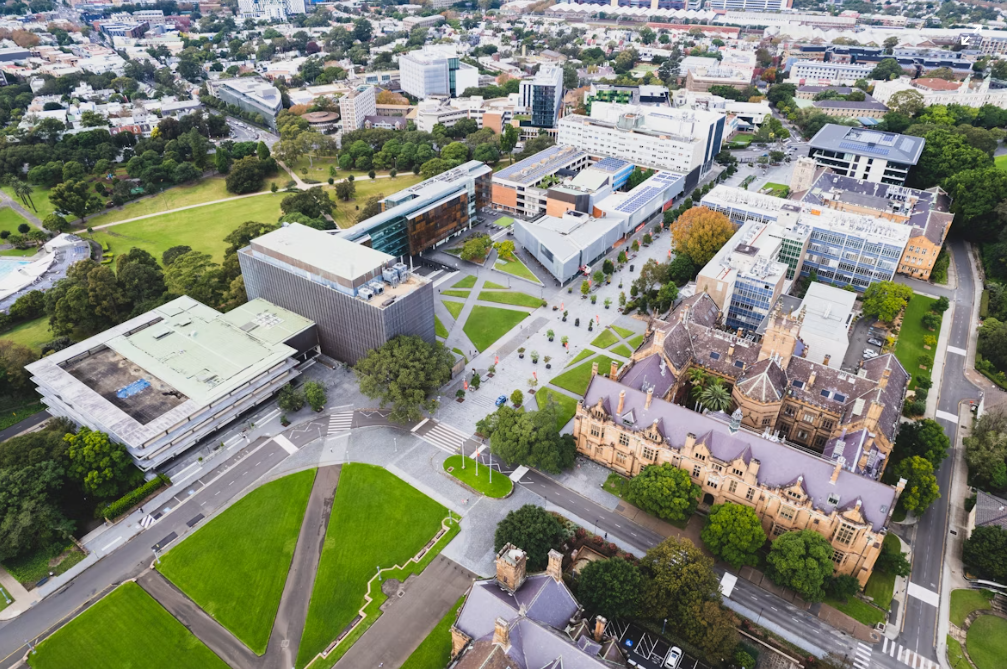Every student is very concerned about those most difficult exam in India. Indian students usually face intense competition pressure. Every year, millions of students flock to the examination halls, and eager to change their lives through this outcome. These students work late into the night, with their minds solely focused on passing these exams and gaining higher recognition. If you can pass toughest exam in India, your future will become brighter. This article will provide a detailed introduction to these most toughest exam in India.
Overview of toughest exam in India [2025]
India places great emphasis on education. Every year, countless young people, filled with dreams, immerse themselves in a series of rigorous and fiercely competitive examinations. The successful candidates of these exams not only obtain the passport to success for themselves, but also bring honor to their families. Now, we will list the top 10 hardest exams in India.
| List | Hardest Exam in India | Exam Time (2025) | Passing Rate (2024) |
|---|---|---|---|
| 1 | UPSC CSE (UPSC Civil Services Examination) | Prelims: May 25, 2025 Mains: August 22-31, 2025 |
0.17% |
| 2 | JEE Advanced | May 18, 2025 | 26.85% |
| 3 | GATE (Graduate Aptitude Test in Engineering) | February 1&2&15&16, 2025 | 19.8% |
| 4 | IIM CAT | November 30, 2025 | 1.67% |
| 5 | NDA | April 13&September 14, 2025 | 1% |
| 6 | CLAT (Common Law Admission Test) | December 1, 2025 | CLAT UG 2024: 5.9% CLAT PG 2024: 15.5% |
| 7 | Chartered Accountant (CA) Exam | Foundation: June 20-26&December 30-31, 2025 Intermediate: May 2-10&November 1-9, 2025 Final: May 2-10, 2025 |
Foundation Dec 2024: 19.2% Intermediate Nov 2024 – Group I: 18.4% Intermediate Nov 2024 – Group II: 15.9% Final Nov 2024 – Group I: 15.7% Final Nov 2024 – Group II: 24.2% |
| 8 | UGC NET | June 10-21&December 2-13, 2025 | June 2024: 18.7% December 2024: 17.7% |
| 9 | NEET | May 4, 2025 | 56.4% |
| 10 | National Institute of Design Entrance Exam | Prelims: January 4, 2025 Mains: March 14-23, 2025 |
For Bachelor: 2.1% For Master: 5.7% |
Top 10 toughest exam in India [Detailed]

1. UPSC CSE (UPSC Civil Services Examination)
UPSC CSE (UPSC Civil Services Examination) is the most prestigious national-level recruitment test in India. It is held annually by the Union Public Service Commission and aims to select grade A officials of the central government, including IAS (Indian Administrative Service), IPS (Indian Police Service), IFS (Indian Foreign Service), and other core positions. The examination is divided into three stages: Prelims, Mains, and Interview. The entire process lasts for nearly a year. As the top toughest exam in India, its competition is extremely fierce, with a quite low admission rate.
| UPSC CSE (UPSC Civil Services Examination) | |
|---|---|
| Exam Level | National |
| Exam Frequency | Once a year |
| Exam Mode | Offline |
| Exam Duration | Prelims: 4 hours Mains: 3 hours per day and complete it over 5 days |
| Exam Language | Bilingual system: The examination papers are printed in both Hindi and English. Candidates can choose to answer either one. |
Eligibility for application
1. Nationality:
- IAS/IPS: Must be an Indian citizen.
- Other positions: Indian citizen, or citizen of Nepal, Bhutan, or an overseas immigrant from India in specific circumstances.
2. Age (calculated as of August 1 of the current year):
- General category: 21 – 32 years old
- OBC: Upper limit is relaxed to 35 years old
- SC/ST: Upper limit is relaxed to 37 years old
- Additional relaxations apply for defense veterans/disabled individuals, etc.
3. Academic background:
- Any bachelor’s degree recognized by the University Grants Commission (UGC) of India is acceptable.
- Application can be made in the same year of graduation, without waiting for the certificate, but proof must be submitted before the interview.
4. Number of attempts:
- General category: Up to 6 times
- OBC: 9 times
- SC/ST: No limit on the number of attempts.
5. Others:
- A valid government-issued photo ID document must be presented.
- No minimum grade or subject requirements.
- No work experience requirement.
2. JEE Advanced
JEE Advanced (Joint Entrance Examination for Advanced Studies) is the most difficult exam in India. It is hosted by seven Indian Institutes of Technology (IITs) in rotation and is specifically designed to select top engineering talents. Candidates must first pass the JEE Main before they are eligible to take this exam held every May.
This examination consists of three compulsory subjects: physics, chemistry, and mathematics. The question types include multiple-choice and others, emphasizing the depth of concepts and the speed of problem-solving. The results determine whether candidates can enter the 23 top institutions, such as IITs, IISc, and IISER. It is also known as “the most difficult undergraduate entrance examination”.
| JEE Advanced | |
|---|---|
| Exam Level | National |
| Exam Frequency | Once a year |
| Exam Mode | Offline |
| Exam Duration | 3 hours per day and complete it over 2 days |
| Exam Language | Bilingual system: The examination papers are printed in both Hindi and English. Candidates can choose to answer either one. |
Eligibility for application
1. Pre-requisite: One must rank among the top approximately 2.5% nationwide in the JEE Main of the same year to be eligible for the official examination.
2. Academic background:
- Must complete the 12th grade or equivalent examination (the “10+2” model), and have taken the 12th grade unified examination for the first time in the current year or the previous year.
- The unified examination subjects must include physics, chemistry, and mathematics, and the total score must reach 75% (for SC/ST/PwD, 65%) as announced by the relevant examination authority.
3. Age: On the October 1 of the same year, one must be ≤ 25 years old (SC/ST/PwD can be relaxed by 5 years).
4. Number of attempts: One can only take the examination twice in their lifetime, and must do so for two consecutive years.
3. GATE (Graduate Aptitude Test in Engineering)
As the toughest exam in India, the Graduate Aptitude Test in Engineering (GATE) is jointly organized by the Indian Institute of Technology and the Indian Academy of Sciences. Every February, it is held in thousands of test centres across the country and overseas. The test results are valid for three years and are used to assess the comprehensive mastery of the selected engineering or science undergraduate knowledge by the candidates. Those who pass the exam are able to apply for master’s or doctoral programs at IITs, NITs, etc., and receive government scholarships. At the same time, hundreds of public enterprises, such as ONGC and BHEL, also use the scores as an important criterion for recruiting engineers.
| GATE (Graduate Aptitude Test in Engineering) | |
|---|---|
| Exam Level | National |
| Exam Frequency | Once a year |
| Exam Mode | Online |
| Exam Duration | 3 hours |
| Exam Language | English |
Eligibility for application
1. Academic bacground:
You must fall into one of the following categories, and your major must correspond to the GATE you are applying for:
- Completed or currently enrolled in the final year of a 4-year Bachelor of Engineering (B.E./B.Tech.)
- Completed or currently enrolled in the final year of a 5-year Bachelor of Science with double degree/double bachelor’s degree (B.Sc. (Research)/B.S.—M.S. etc.)
- Completed or currently enrolled in the final year of a 5-year Bachelor of Architecture (B.Arch.)
- Completed or currently enrolled in the final year of a 4-year Bachelor of Science (B.Sc.) or a 3-year Bachelor of Science + 2-year Master of Science
- Obtained or currently enrolled in the final year of a 2-year Master of Science (M.Sc.), Bachelor of Engineering (M.E./M.Tech.) or equivalent postgraduate program
2. Enrollment Grade:
- Undergraduate degree candidates must graduate by July 31, 2026
- Graduate degree candidates must graduate by July 31, 2025 or July 31, 2026 (as officially announced in the current year)
3. Nationality:
There is no restriction on nationality.
4. Age:
GATE does not set a minimum or maximum age limit.
4. IIM CAT
IIM CAT is widely regarded as the most difficult exam in India. It is hosted by the six old-style IIMs (Ahmedabad, Bangalore, Kolkata, Lucknow, Indore, and Coimbatore) in rotation. Now, it has become the most authoritative business school entrance exam recognized in India. The IIM CAT score is also recognized by over 100 management colleges in India (such as FMS, SPJIMR, MDI), and even some international programs accept its scores.
| IIM CAT | |
|---|---|
| Exam Level | National |
| Exam Frequency | Once a year |
| Exam Mode | Online |
| Exam Duration | 2 hours |
| Exam Language | English |
Eligibility for application
1. Education: Must hold or will obtain any three-year undergraduate degree in any discipline and any mode (including full-time, distance learning, and open university) by June of the current year.
2. Academic background:
- Only the “Pass” standard determined by the university/committee for the undergraduate stage is required.
- No restrictions on undergraduate major or institution level.
- No work experience requirements.
3. Nationality: There is no restriction. Indian and overseas candidates are all eligible to apply.
4. Age: No age limit.
5. NDA
The National Defence Academy Entrance Examination (NDA) is organized by the Federal Public Service Commission, and is the sole channel through which India selects and jointly trains officers for the army, navy and air force. Applications are accepted in spring and autumn each year, and the candidates must be unmarried males aged between 16 and 19.
Those who pass the exam will first attend the Defence Academy in Pune for a three-year course of liberal arts and sciences, and then be sent to various military academies for one year of training. After graduation, they will be awarded the rank of second lieutenant. NDA is widely regarded as India most toughest exam, and is renowned for its intense competition. Although the admission rate of this exam is less than 3%, it has produced more than 30% of the active-duty generals in India.
| NDA | |
|---|---|
| Exam Level | National |
| Exam Frequency | Twice a year |
| Exam Mode | Offline |
| Exam Duration | 150 minutes per session, and there are two sessions. |
| Exam Language | Bilingual system: The examination papers are printed in both Hindi and English. Candidates can choose to answer either one. |
Eligibility for application
1. Nationality: Indian citizens, or citizens of Bhutan, Nepal, and designated Tibetan immigrants, Pakistan, etc. (must hold a government-approved certificate).
2. Gender and Marital Status: Only unmarried males (as of the date of enrollment and registration).
3. Age: 16 to 19 years old. Calculated based on the first day of January or July of the year of the written test.
4. Academic background:
- Must have passed or be currently enrolled in grade 12.
- Applying for the Army only requires passing any liberal arts subject.
- Applying for the Navy, Air Force, and Naval Aviation Corps must complete courses in physics and mathematics and pass.
5. Physical quality:
- Height ≥ 157 cm (Air Force: 162.5 cm)
- Vision, hearing, and overall health must meet the medical standards of the three armed forces.
- Color blindness, flat feet, major surgical history, etc. may result in disqualification.
6. CLAT (Common Law Admission Test)
CLAT (Common Law Admission Test) is a national unified examination in India, specifically designed to select students for undergraduate and postgraduate law courses. It is jointly adopted by 22 national law universities and several other institutions. CLAT is regarded as the hardest exam in India legal education. Every year, over 60,000 people take the exam, and the competition is extremely fierce. Candidates usually need to participate in systematic training one year in advance, and then keep closely updated on the official website’s latest information.
| CLAT (Common Law Admission Test) | |
|---|---|
| Exam Level | National |
| Exam Frequency | Once a year |
| Exam Mode | Offline |
| Exam Duration | 2 hours |
| Exam Language | English |
Eligibility for application
CLAT divides into undergraduate and postgraduate:
1. Undergraduate (UG):
- Completion or graduation from any subject in 12th grade, with a total score of 45% (for SC/ST, 40%).
- No age limit.
2. Postgraduate (PG):
- Must have obtained an accredited bachelor’s degree in law (LL.B/BA.LL.B, etc.) and have a cumulative grade of at least 55% (for SC/ST, 50%).
- No age limit.
3. Overseas/PIO candidates: Follow the same process, and the score conversion must be certified by AIU.
4. Registration: Online registration on the official website every March, with a fee of approximately 4000 rupees.
7. Chartered Accountant (CA) Exam
Chartered Accountant (CA) Exam is a professional qualification system commonly adopted in Commonwealth countries, aiming to cultivate professionals with comprehensive capabilities in auditing, taxation, and financial management. Taking the Indian ICAI as an example, the entire examination is divided into three levels: foundation, intermediate, and final.
After passing all the subjects and completing the training, one can obtain the professional certificate issued by the Indian Institute of Chartered Accountants (ICAI). This enables one to have the legal qualifications to sign audit reports, engage in tax agency services, and serve as an enterprise consultant. The entire process takes an average of 4.5 years, and the pass rate is very low, making it known as one of the India’s top 10 toughest exam.
| Chartered Accountant (CA) Exam | |
|---|---|
| Exam Level | National |
| Exam Frequency | Twice a year |
| Exam Mode | Offline |
| Exam Duration | 2.5 hours per subject, and there are 4 subjects. |
| Exam Language | It depends on the organizing association and the jurisdiction where it is located. |
Eligibility for application
Take the ICAI system in India as an example. The qualifications for each stage of the examination are as follows:
1. Foundation:
- Have completed or are about to complete the 10+2 years education.
- There are no subject restrictions, but you must first register for the Foundation course at ICAI (with a registration validity period of 3 years).
2. Intermediate (satisfy any one of the following conditions):
- Have passed the CA Foundation examination.
- Have a bachelor’s degree from any major at an accredited university with a total average score of ≥ 55% (for business) or ≥ 60% (for non-business).
- Have obtained the entry qualification recognized by ICAI (such as holding other designated accounting qualifications).
- After registering for the Intermediate course, you must complete 4 weeks of ICITSS (Information Technology and Soft Skills) training before taking the exam.
3. Final:
- Have passed all two groups of the CA Intermediate examinations.
- Have completed at least 2 years of articleship training and passed the advanced comprehensive course (AICITSS).
- During the training period, you must submit article logs, progress reports on time, and have them signed and confirmed by a practicing mentor.
4. Supplementary requirements:
- Age: There is no age requirement. However, when registering for Foundation, you must be at least 18 years old by July 1 of the examination year (if using the direct admission pathway, this restriction does not apply).
- Nationality: There is no nationality restriction. Foreign candidates must register at the ICAI overseas test centre in their country.
8. UGC NET
UGC NET (University Grants Commission National Eligibility Test) is a national-level teacher qualification examination in India, organized by the University Grants Commission (UGC). It was established in 1989 and is held twice a year by the National Testing Agency (NTA) under the UGC. The purpose of the examination is to select talents who meet the qualifications for assistant professors and doctoral student fellowships (JRF) in Indian universities, covering 84 disciplines, such as humanities, social sciences, business management, sports, computer science, etc. In recent years, UGC has continuously adjusted the subjects, introduced online applications and computer-based tests, aiming to improve efficiency and credibility.
| UGC NET | |
|---|---|
| Exam Level | National |
| Exam Frequency | Twice a year |
| Exam Mode | Online |
| Exam Duration | 3 hours |
| Exam Language | Bilingual system: The examination papers are printed in both Hindi and English. Candidates can choose to answer either one. |
Eligibility for application
1. Academic background: Must hold a master’s degree from an Indian recognized university or an equivalent degree, and the major must be consistent with the subject being applied for.
2. Scores:
- General category: ≥ 55%
- OBC (non-cream layer), SC, ST, PwD, transgender: ≥ 50%
- Scores can be “pending results”, but must be supplemented before the final submission deadline.
3. Age:
- JRF: No older than 31 years on December 1 of the examination year; OBC/SC/ST/PwD/female/research experience candidates can be relaxed by 3-5 years.
- Assistant Professor: No age limit.
4. Nationality: Only Indian citizens are eligible; valid Aadhaar or other government-recognized documents must be presented at the time of registration.
5. Others: Only one subject can be applied for within the same examination period.
9. NEET
NEET (National Eligibility-cum-Entrance Test) is the sole unified examination for undergraduate medical and dental programs in India. In India, anyone aspiring to become a dentist must pass this exam. The exam is organized by the National Testing Agency (NTA) and is held only once a year. As the most difficult exam in India, the admission rate for this exam is extremely low. Many people strive to achieve high scores in order to increase their chances. The results of this exam determine whether you can enter a medical college.
| NEET | |
|---|---|
| Exam Level | National |
| Exam Frequency | Once a year |
| Exam Mode | Offline |
| Exam Duration | 3 hours |
| Exam Language | This examination offers 13 languages for selection: Hindi, English, Tamil, Telugu, Malayalam, Kannada, Odia, Bengali, Assamese, Gujarati, Marathi, Urdu and Punjabi. Candidates only need to choose one when registering. |
Eligibility for application
1. Age:
- Applicants must be 17 years old or above as of December 31 of the examination year.
- The upper limit is 25 years old (for general category), and the reserved category is relaxed to 30 years old.
2. Academic background: Must complete or be currently studying in the 12th grade in India. The subjects must include physics, chemistry, biology/biotechnology, and English, and the total score must be at least 50% (40% for SC/ST/OBC, 45% for PWD).
3. Nationality: Indian citizens, Overseas Indian Citizens (OCI), and Nepalese/Burman students studying in India in the 12th grade.
4. Number of attemps: No official limit. As long as the age and academic qualifications requirements are met, one can reapply.
10. National Institute of Design Entrance Exam
The National Institute of Design Entrance Exam (NID-DAT) is a national unified selection examination set by the National Institute of Design in India for undergraduate and postgraduate design courses. It consists of two stages: Prelims and Mains. The official website releases the notice in October each year, and the Prelims are held in January of the following year, followed by the Mains in April and the results announcement in May.
The admission rate is less than 10%, making the competition extremely fierce. It is recommended to start systematic training in hand-drawing, material experimentation and creative thinking half a year in advance, and also observe the excellent cases from previous years.
| National Institute of Design Entrance Exam | |
|---|---|
| Exam Level | National |
| Exam Frequency | Once a year |
| Exam Mode | Offline |
| Exam Duration | Prelims: 3 hours Mains: 3-4 hours per day and complete it over 3 days |
| Exam Language | English |
Eligibility for application
For Bachelor:
1. Age: General candidates must be under 20 years old on July 1st of the year of admission; SC/ST/PH candidates can be up to 3 years older, OBC-NCL candidates can be up to 3 years older, and PWD candidates can also be up to 3 years older.
2. Academic background:
- Candidates must have passed 10+2 or equivalent examinations (CBSE/ISC/state education board/NIOS/IB/Cambridge A-Level, etc.) and must have achieved a “pass” grade in any one of the examinations.
- 2025 graduates can apply with a school certificate, but must submit the final transcript by June 30th, 2025.
- No restrictions on major (science or arts), but must complete five subjects including English; art candidates must have a record of the “Theory and Practice” subject.
3. Nationality: Only Indian citizens are eligible; OCI/PIO can apply as equivalent Indian citizens.
4. Number of attempts: No limit on the number of applications, but can only apply once per year.
For Master:
1. Academic background: Requires a 3-year bachelor’s degree or a 4-year degree in engineering/design/architecture, with a total score of no less than 50% (45% for category 4).
2. Age: The maximum age limit is 30 years old (for the same category, the extension rules apply as above).
Why are they top toughest exam in India?
The reason why these most difficult exam in India are so challenging lies in the extremely competitive environment and the complex examination system. Below, we will analyze the reasons why they are toughest exam in India from several perspectives.
1. Large population
When it comes to the reason why these exams are so difficult, we cannot ignore the factor of the large population. India is a populous country, but the number of passing people for the top toughest exam in India is limited. Every year, over 10 million graduates compete for less than 20,000 IIT degrees and 1,000 IAS positions, with an admission rate of less than 1%. Moreover, at present, there are still many young people in India, and the competition pressure will be very high in the future.
2. Important way to cross social classes
In India, getting into IIT, IIM or becoming an IAS officer is the only visible way to leap to the middle class or even higher hierarchy. A single admission notice could potentially change the fate of your entire family. Therefore, every year, tens of millions of candidates devote their youth, money and family hopes to these most toughest exam in India, viewing it as a battle for survival rather than a test of intelligence. The stronger the desire for crossing social classes, the more intense the competition becomes, eventually making these exams among the most difficult in human history to pass.
3. Complex exam system
The reason why they are India most toughest exam lies in the fact that they have transformed into a complex, multi-stage, long-term, interdisciplinary, and highly-weighted screening system. The scope of examination for many exams far exceeds the curricula of high schools or universities. The scoring criteria are so strict that they reach two decimal places, and there are restrictions on the number of attempts, age, and the combination of subjects. All these make it necessary for candidates to avoid making mistakes at every stage in order to ensure that they are not eliminated in this complex system.
Final Thoughts
Passing most difficult exam in India is the ultimate test of knowledge, perseverance and luck. The difficulty of these exams profoundly reflects the sharp contradiction between India’s large population and its limited resources. They are more than an assessment tool and have become a social phenomenon. This phenomenon not only shapes a culture where education is highly valued by the entire population, but also gives rise to a huge preparation industry.
Although this selection system is accompanied by great pressure and questionable fairness, it remains to be the core channel for millions of Indian youth to strive for elite education and social class advancement. These toughest exam in India play an irreplaceable role in the country’s talent selection process.
FAQs on most difficult exam in India
Here are top 10 hardest exams in India:
- UPSC CSE (UPSC Civil Services Examination)
- JEE Advanced
- GATE (Graduate Aptitude Test in Engineering)
- IIM CAT
- NDA
- CLAT (Common Law Admission Test)
- Chartered Accountant (CA) Exam
- UGC NET
- NEET
- National Institute of Design Entrance Exam
Here are the most difficult courses in India, just for your reference:
- Computer Engineering
- Chartered Accountant (CA)
- Master of Philosophy (M.Phil)
- Medicine
- Engineering
- MBA (Master of Business Administration)
- Architecture
- Law
- Civil Services
- Pharmacy
It is generally believed that JEE Advanced is more difficult. Both are India most toughest exam, but they have different levels of difficulty.
- JEE Advanced places greater emphasis on in-depth understanding, logical reasoning, and the ability to solve complex problems. The exam questions involve intense physical and mathematical reasoning, testing the flexibility and creativity of the mind. Its candidates are already selected elites, with extremely high competition and a very low tolerance for mistakes.
- NEET, on the other hand, focuses more on the breadth of knowledge and memory. The syllabus is extensive and requires mastering a large number of details (especially in biology). Although the competition is equally intense, the question patterns are relatively more simple.
The number of attempts allowed for the UPSC Civil Services Examination depends on the category to which the candidate belongs:
- General category candidates: You can attempt up to 6 times.
- OBC candidates: You can attempt up to 9 times.
- SC/ST candidates: There is no limit on the number of attempts, but they must be within the age limit.
Engineering and technology.
This degree aims to cultivate students’ ability to apply scientific, mathematical and technical principles to design, build, improve and maintain systems, equipment, structures and processes. Graduates have excellent employment prospects and can take up positions as engineers, researchers, project managers or technical experts in almost all industries, such as aerospace, energy, IT, automotive, biotechnology, consulting, etc. These students will be the core force driving social technological innovation and industrial development.








